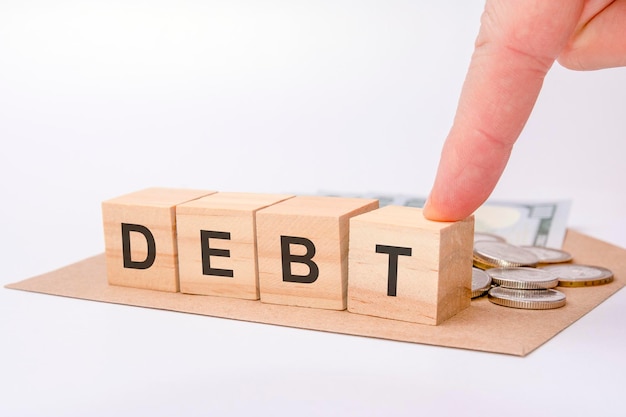
Having a large amount of debt can often feel as if you’re trudging through life with a heavy burden on your shoulders, which poses a hard question: should you focus on paying down that debt, or invest for your future right away? This decision isn’t one-size-fits-all. Everyone’s situation is unique, so here are some factors to ponder that can help guide your decision.
Why You Might Consider Investing First
The Great Debt Question
Your level of debt is unquestionably a hefty determinant. If your outstanding debt is minimal, it would be reasonable to consider investing your additional income rather than making extra debt payments. This is mainly due to the fact that a low level of debt doesn’t usually accumulate significant interest charges.
However, if you’re grappling with a large amount of debt, it’s more beneficial to concentrate on repaying it to prevent accumulating more debt from interest charges. These charges can rapidly balloon over time, potentially costing more than if you had prioritized clearing the debt initially.
Your Retirement Nest Egg
A large number of employers provide a matching 401(k) contribution, often between 3% to 5%. This essentially equates to free money for your retirement, and is inherently part of your overall compensation package. Failing to take full advantage of this is akin to returning a chunk of your salary back to your company. Therefore, you’d want to ensure you secure the full match before directing additional money towards your debt.
Additionally, remember to consider the tax benefits tied to your 401(k). Tax-advantaged retirement accounts utilize pre-tax dollars which can lower your taxable income in the short term.
Extra Cash Considerations
Should you be fortunate to receive a substantial amount of cash via inheritance or a work bonus, consider beefing up your emergency fund first. For sizeable lump sums, a 60:40 split between debt and investment is a good strategy. Utilize the larger portion to reduce your debt to a manageable monthly payment, enabling you to clear the balance in a shorter timeframe.
Why You Might Lean Towards Paying Off Debt First
Interest Rates
The major concern with debt is the interest it generates. High-interest-rate credit card debt can hinder your progress towards financial freedom, so it’s often advisable to prioritize clearing this debt or securing a lower interest rate.
Credit Score Boost
Another compelling reason to focus on debt repayment is improving your credit score, which can impact many areas of your life, from insurance premiums to rental agreements and even employment opportunities.
Can You Balance Both?
It’s not mandatory to strictly choose between investing or debt repayment. You can strike a balance that allows you to aim for multiple financial goals simultaneously. Here’s why this approach is crucial:
Balancing Acts
While the satisfaction of becoming debt-free is enticing, neglecting to save or invest during this time can leave you with zero net worth after all your debts are paid off. Instead, making strides towards saving or investing, while paying down debt, can help you make progress on essential financial benchmarks.
The Importance of Investing For Your Future
Having a solid investment plan can be crucial in dealing with unexpected life events, such as becoming unable to work or a sudden bereavement. The financial impact of these scenarios without appropriate insurance strategies can be far greater than a few months of debt interest.
The Bottom Line
Paying off debt might give you immediate financial peace of mind, while investing can yield long-term benefits.
Before deciding which route to take, conduct a thorough analysis of your financial situation. If for instance, your low-interest debt is tied to an appreciating asset like real estate, it might be more viable to invest your extra money while continuing to make your minimum debt payments.
On the other hand, you should prioritize debt clearance if you’re burdened with high-interest credit card balances. This kind of debt isn’t only costly but it can also impede your ability to secure affordable lines of credit in future and lower your short-term quality of life while costing you more in the long run.
Considering all these factors is critical in determining the best approach for your circumstances.
(Sources: SmartAsset.com)


